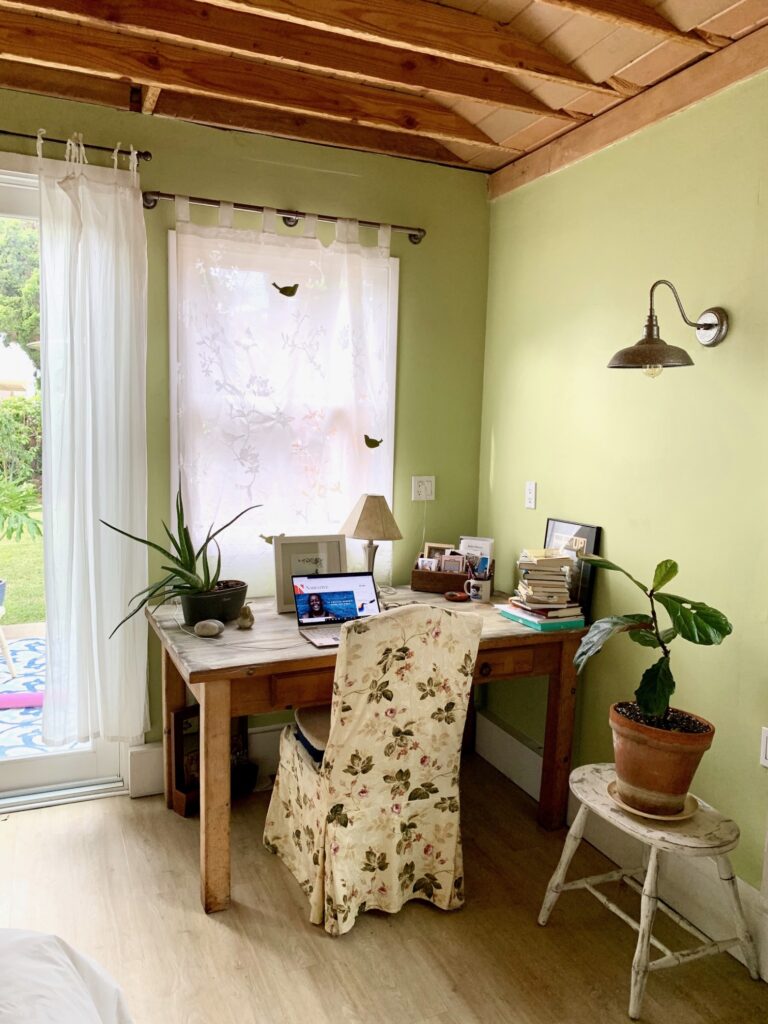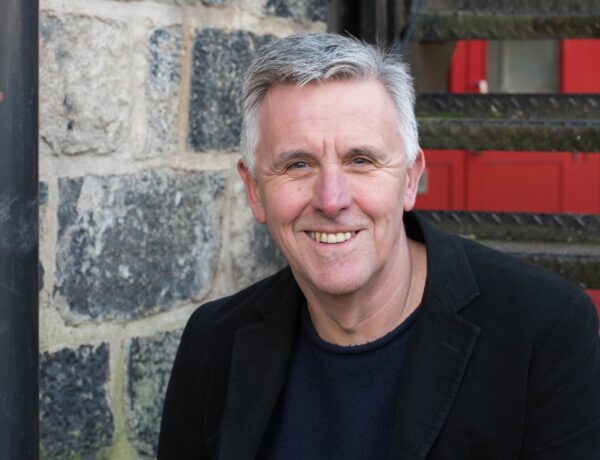Lisa Cupolo has been a paparazzi photographer in London, an aid worker in Kenya, a script doctor in LA, and a literary publicist at HarperCollins in Toronto. Have Mercy On Us, her debut book, won the W.S. Porter Prize for short story collections. Her work has been published in The Virginia Quarterly Review, Ploughshares, Narrative, The Idaho Review, and others.
She holds a BA in Philosophy from The University of Western Ontario, a graduate degree in Portrait Photography from The London Institute, and an MFA from the University of Memphis. She has lived all over the world, but currently resides in Southern California, where she has taught fiction writing at Chapman University.
Looking for inspiration to help you achieve your writing goals? Subscribe to our newsletter for exclusive insights into the routines, habits, and techniques of some of the most celebrated authors in history.
Hi Lisa, welcome to Famous Writing Routines, great to have you here with us today! First of all, congratulations on winning the W.S. Porter Prize for Have Mercy On Us! What was it like for you to receive this recognition for your debut book?
Thank you! When I found out my book was shortlisted for the W.S. Porter Prize, I said to my husband, ‘look, my name is last, I just made it,” and I was so excited to even be listed. There were writers on that shortlist whose work I knew and respected.
Then when I got the news that I’d actually won the prize, I was astonished. I walked around in a daze for hours and I remember I was baking banana chocolate muffins for my daughter and I felt like I was floating around the kitchen. It has changed a lot for me, in the sense that I finally have a seat at the table, metaphorically speaking, because I have an actual book out in the world. This shouldn’t be the case but it is.
You have had a very diverse and fascinating background, from being a paparazzi photographer in London to an aid worker in Kenya to a script doctor in LA to a literary publicist at HarperCollins in Toronto. How have these experiences influenced your writing?
Travel has profoundly shaped who I am as a writer. I’ve been lucky to live in other countries with wide-ranging jobs and careers, and that texture has been foundational in my writing life.
I notice my senses are heightened to a greater degree when I’m abroad because nothing is habitual or known. I sort of thrive on the unknowns that come from being in a foreign place. The idea of discovering the streets of a new city or falling in love with the people and culture of a new country is thrilling to me. Your awareness becomes sharper, and I find I take less for granted when I’m more aware of the details of my surroundings.
I’m Canadian but I’ve lived in Southern California for ten years now and even though there are many similarities here to my life in Toronto, I’m constantly aware that the US is not my country, that I’m not at home. I love the edginess that can bring to my days. It reminds me that stability on this planet is something we fabricate in our minds and home is something we decide.
You have lived all over the world and currently reside in Southern California where you teach fiction writing at Chapman University. How have your experiences traveling and living in different places impacted your writing?
I see how privileged I am to live in Southern California with the sunshine, palm trees, beautiful beaches and mountains close by. Chapman University, where I teach fiction writing, is one of the most gorgeous universities in the world. I am very blessed. I guess it helps that I’ve lived in bigger, more challenging cities and more difficult climates and that adds more texture to the landscapes in my work. Of course, trouble follows people no matter how exceptionally lovely the place is where they live.
Have Mercy On Us has been praised for its ability to enlarge our understanding of what it means to be alive and to love. How did you approach writing about these universal themes?
I try not to have any intentions when I start a story. I start with the voice of the character. It’s always a voice for me, creating a character a reader cares enough about to want to keep following. I find that my characters end up writing themselves in a way, and somehow reflect some of the themes I think about.
As a fiction writer, it’s important to only ask the questions in terms of what it means to be human, and only to that one particular character. Writing has helped me to understand that people are after the same basic things in life, connection and survival and safety, and the desire to be loved. And yet the way we go after those things and live our lives is so profoundly different and that is what is endlessly fascinating to me.
The stories in the book are both spare and romantic, yet not sentimental. Can you talk about your writing style and how you strike this balance in your storytelling?
Yes. My style has been called staccato and I think it’s a pretty apt way to describe how tight my stories can be. There’s not a lot of filler and extraneous details given about a character or place and I obsess over every word. I try many ways of saying something before deciding on the right word. I think that’s why story writing suits me so well. And yet I’m actually working on a novel right now. A novel written in stories.
Discover the daily writing habits of authors like Stephen King, Neil Gaiman, and Gillian Flynn with Famous Writing Routines Vol. 1 and learn how to take your writing to the next level. Grab your copy today!
One of the stories is a beautifully imagined portrait of Zora Neale Hurston near the end of her life. Can you talk about your process for bringing this historical figure to life in your writing?
When I started this story I was in Memphis getting an MFA in creative writing and studying African American literature. I’d arrived at Memphis from Toronto, one of the most multicultural cities in the world and I’d lived in London, France and Kenya, too and traveled widely. I remember that I felt as if I was in a time warp when I first got to Memphis, in terms of racism. When I walked into my first comp class to teach, the black kids sat on one side of the room and the white kids on the other.
I was shocked and it made me endlessly fascinated with the cultural history of the American South and African American literature. I took every class offered and in one class I begged the professor to let me write something creative instead of a heady works cited essay that I felt incapable of writing. I was very pregnant at the time and I remember feeling wild and vulnerable in the unique way that only a pregnant woman can feel when another human is growing inside of her.
I had been reading all afternoon, and of course Zora Neale Hurston’s life had been part of my obsession and I remember exactly where I was in my apartment when I read that she’d worked as a maid at a motel in Ft.Pierce, Florida. I was so mesmerized by this idea and I just imagined what it would be like for such a brilliant woman to have to work at that kind of job to pay the rent.
Zora Neale Hurton died with nothing. It just made me understand how unfair and at the same time insignificant fame can be. I thought of her meeting a young writer in one of the motel rooms she cleaned, a young male writer I thought, who saw himself as the real deal. Then I just went off with that idea and wrote voraciously.
The story seemed to write itself because my mind had been so full of what I’d read about her and from the books of hers I’d read. It was as if her voice was echoing in my mind. It was a powerful experience. I think it does stand out in this collection as it’s just such a different voice.
As a writing teacher at Chapman University, what advice would you give to aspiring writers about crafting short stories?
I would say read and write, read and write, and read and write some more. Reading the best stories and novels in literature is like a direct download into your subconscious for how to craft good writing. I believe the form seeps into you organically. I haven’t met a great writer who wasn’t also a great reader.
The other thing is to have patience. Stories take a long time. In one semester, a student might write a story that is good but then it might take a year or so of editing to get it to a place where it’s a fully realized and publishable piece of writing.
Can you tell us about your writing routines? What does a typical day look like for you?
It sounds like a wonderful way to live but I’ve not really had that kind of life where I’ve settled into routines. We have a 16 year old and varied schedules in our house so things are always changing. Also, I have a lot of nervous energy, ADD, or whatever label fits. I usually get up around 5am and do my morning absolutions – some variation of coffee, walk, meditation, journaling, or yoga and then I go to my desk and work. My only rule is that I write each day, visit work, but there is no set time. If I have an espresso after our evening meal I could write until 3am. But that doesn’t happen often anymore.
If you could have a conversation with any author throughout history about their writing routine and creative process, who would that person be?
Carol Shields. She is a famous Canadian writer whose work I admire and I’d love to talk about her challenges as a writer and also as a woman and mother, and how she dealt with all of it. I’d be so interested to know what shaped her to become a writer and also ask about her process writing The Stone Diaries.
I’d love to know about the books you’re reading at the moment. What have been some of your favorite recent reads?
- Playhouse by Richard Bausch
- Indigo Field by Marjorie Hudson
- The Half Known Life by Pico Iyer
- Loving the Dead and Gone by Judith Turner-Yamamoto
What does your current writing workspace look like?
It’s the garage of our house that we’ve turned into a guest room/writing room. I love it. The walls are celery green, my favorite color.

Affiliate disclaimer: Some links on this website are affiliate links. We may earn a small commission if you make a purchase through these links, but only promote products we truly believe in. We disclose affiliate links and give honest reviews.



No Comments